Mozambique | Ossufo Momade: Election fraud, failed state mark 50th independence - Watch
Watch: CNE chair blames political parties for election problems – AIM
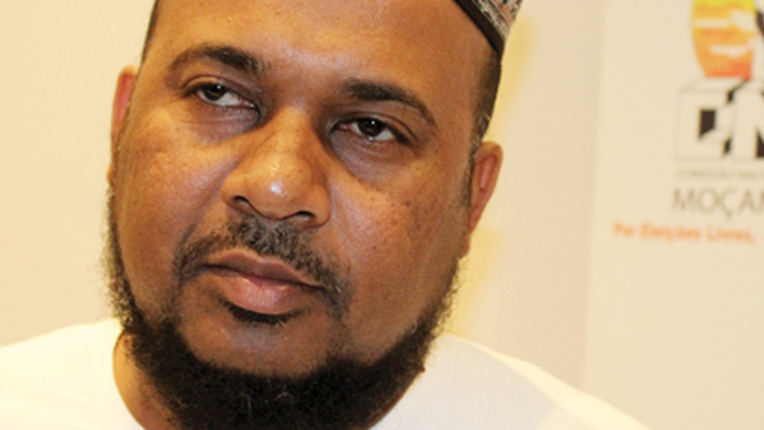
File photo / Abdul Carimo
Many of the problems that have plagued Mozambican elections are the fault of the political parties themselves, accused the chairperson of the National Elections Commission (CNE), Abdul Carimo, in an interview published on Monday in the Maputo daily “Noticias”.
Carimo said that, despite regular meetings with the CNE, at the last general elections, in 2014, the political parties simply did not take advantage of all the possibilities to monitor the elections which the electoral law gives them.
“We met with the political parties right up to voting day”, recalled Carimo. “We approved everything with the knowledge and participation of the political parties. In the last meeting we had with them, they all said that preparing the elections was positive”.
But after the results came in, showing a victory for the ruling Frelimo Party, the main opposition parties denounced the elections as fraudulent.
Carimo believed that the parties had simply not appointed in due time all the election monitors to which they were entitled. Each party participating in the parliamentary elections, and each presidential candidate, has the right to appoint a monitor at each and every polling station – and there were 17,202 polling stations in 2014.
In addition, the three parties represented in parliament – Frelimo, Renamo, and the Mozambique Democratic Movement (MDM) – were entitled to appoint one member of the polling station staff at each station, who would take part in all the procedures, including the count.
After the count, each polling station monitor is entitled to receive a copy of the results sheet, and the CNE extended this right to the Frelimo, Renamo and MDM polling station staff. Thus each political party should have been able to carry out its own parallel count, checking on the results announced by the CNE.
But in reality, said Carimo, in 2014 “none of the parties managed to fill 100 per cent of the places to which they were entitled”.
He wondered what was the point of all the detailed preparations if, on polling day itself, the political parties failed to send their monitors to the polling stations. “If the parties aren’t there, what’s the use of this entire preparatory process?”, asked Carimo. “What was the use of all those meetings with the political parties?”
He recalled that the parties had complained bitterly about problems in acquiring credentials for their polling station monitors – but Carimo insisted the real problem was that the parties did not deliver the lists of their monitors’ names in good time to the CNE. The electoral law, he pointed out, said that the lists must be delivered at least 20 days before polling day “but up to the day before the vote I was still receiving lists of monitors’ names from the parties. We were very permissive”.
Thus, in order to accommodate the political parties, the CNE broke the law. This angered the Constitutional Council, the body which validates election results. The Council rapped the CNE over the knuckles for its failure to impose the deadlines contained in the law, and insisted that this must not happen again.
So, in a meeting with political parties last month, the CNE warned that in the next elections the deadlines must be taken seriously. “We shall guarantee that the legal deadlines are respected”, Carimo warned. “If somebody brings their requests for accreditation beyond the deadline, we shall not be able to do anything about it”.
It is not the job of the CNE to give advice to political parties, Carimo added. That should be the task of their own legal departments.
But it seemed that many of the parties – and he was clearly thinking mainly of the dozens of minor parties who contest every election – are not properly structured and do not even have communication departments that can deal with election propaganda.
In election periods, slots are reserved for political party broadcasts on Radio Mozambique (RM) and Mozambican Television (TVM), but in 2014 both RM and TVM protested that the parties did not bring the materials to fill those slots. Carimo noted that, at the last meeting between the CNE and the parties, they admitted they did not have the capacity to produce their broadcasts.
Anyone who watched the 2014 campaign could see that only Frelimo, Renamo and the MDM filled all their radio and TV slots. The gaggle of minor parties were mostly unable to produce party political broadcasts. Carimo thought “it is a serious gap when a political party does not have a communications department”.
As for the parties’ ability to justify the use of money they receive from the state for their election campaigns, Carimo thought this was “lamentable”. The parties’ financial departments were just as feeble as their legal or communications departments.
Parties receive state funds in instalments. Carimo said the parties could generally justify the first instalment, but had difficulties explaining how they had used the last instalment. Failure to justify use of election funds should lead to a court case, but AIM is not aware of any prosecutions of political parties who did not justify their expenditure.


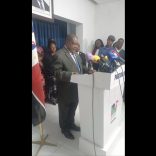

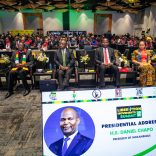

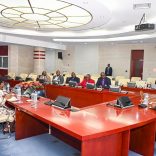
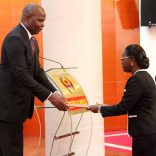




Leave a Reply
Be the First to Comment!
You must be logged in to post a comment.
You must be logged in to post a comment.